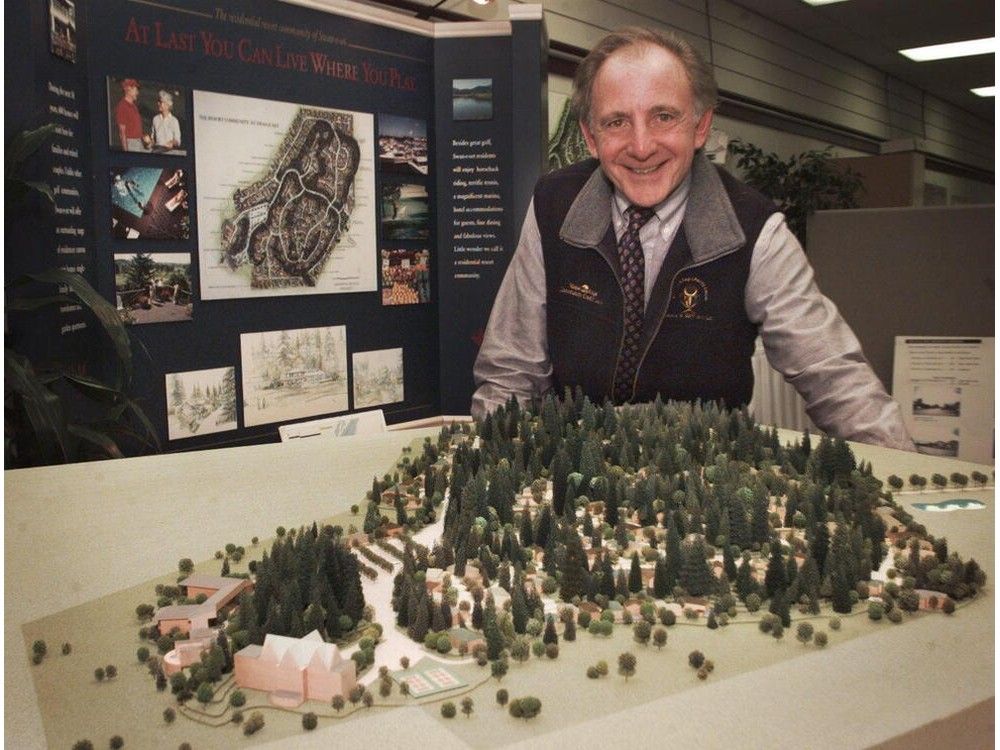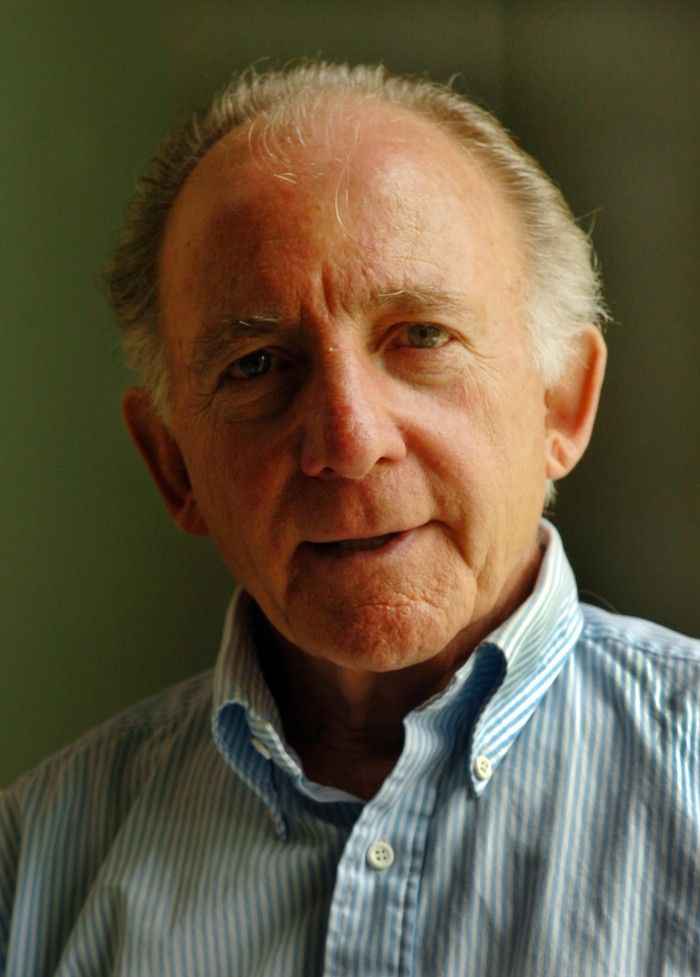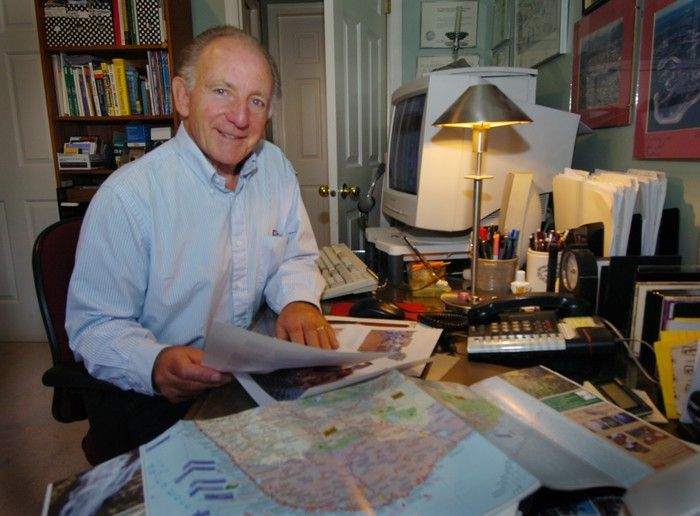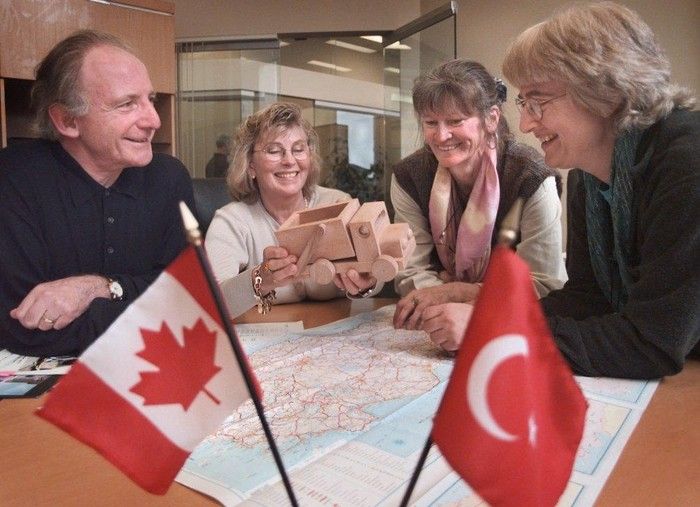
You may not recognize the name Neil Griggs. But if you live in Vancouver, you’ll know many of the developments he helped plan and build.
He started off in the False Creek south development in the 1970s, then was instrumental in the development of Whistler Village in the late ’70s and ’80s.
An Australian developer was so impressed with Whistler that he hired Griggs to manage the development of Sanctuary Cove, a giant resort in Australia.
Back in Vancouver, he helped redevelop the Oakalla Prison lands and Swaneset golf course. When he neared retirement, he founded an international development agency, Builders Without Borders, which works to improve living conditions of vulnerable populations around the world.
Griggs passed away June 28 at Point Grey Private Hospital care home after battling dementia. He was 86 years old.
Neil John Griggs was born on April 29, 1939 in Lahore, India, which is now part of Pakistan. His father was a doctor from rural Manitoba who moved to England. After marrying a British nurse, his dad went to work with the Indian Medical Service, an adjunct of the British army.
The Second World War broke out while the Griggs family were in India, and they remained there throughout the war. They returned to England in 1946 and moved to Vancouver in the late 1950s.

Griggs had a brief career in banking before enrolling at UBC in the 1960s, where he received a BA and MA in community planning.
He joined the False Creek south project in 1973, which transformed a derelict industrial area into an internationally renowned residential neighbourhood.
“The real leaders of that project were (former mayor) Art Phillips and (former councillor) Walter Hardwick,” said Michael Geller, who worked on the False Creek south development.
“But I would say that Neil can be credited with making it happen. He started turning a lot of people’s dreams into a reality.”
Griggs worked closely with Doug Sutcliffe on False Creek, and they both had a knack for talking to people, and getting things done.
“There could be 23 problems, and they could make it seem like you were the only person holding things up,” Geller said. “And if you would just change your mind a little bit, the whole thing could progress. Then they go and speak to the other 22 people.”
In a small autobiography Griggs wrote for the West Point Golf Club, Griggs noted, “The first 16 residential sites (in False Creek) were for families and seniors. The project included construction of the seawall, a school, the park and two marinas — all completed in four years, except the school, as the school board needed evidence that the project would attract families.”
Griggs and Sutcliffe then teamed up with Jim Moodie to manage the development plan for the pedestrian-oriented Whistler Village.

In his bio, Griggs wrote he was “appointed president and general manager of the Village Development Corporation in 1979 to complete the Whistler Arnold Palmer Golf Course, the village infrastructure, and invite proposals for the first 16 village sites.
“This was completed in a short period, (along) with the opening of Whistler and Blackcomb Mountains, each providing gondola access from the village to the tops of the two mountains.”
Whistler was soon named best ski resort in North America, and Australian developer Michael Gore lured Griggs down under to develop Sanctuary Cove, which Griggs said transformed “a muddy swamp into one of (Australia’s) most celebrated resort communities.”
Back in Vancouver, the B.C. Buildings Corp. hired his company, Griggs Project Management, to redevelop the Oakalla site “with the construction of services, roads and park, (as well as) the sale of townhouse sites to developers.”
In 1997, he founded Builders Without Borders, which has worked on over 50 projects in 12 counties.
Griggs is survived by his children Leah (Fladgate) and Paul, his grandchildren Taylor and Courtenay Fladgate, and his wife Enda Bardell, her children Anita and Lance and her grandchildren Lauren, Theo, Cole and Justine. He also leaves behind his siblings Beverly (Jacqueline) and Mark (Marie). He was predeceased by his first wife Jean and his brother Russell.
A memorial will be held at 1 p.m. on Sept. 27 at St. Phillips Anglican Church, 3737 West 27th in Vancouver.
“Even though his name is not very well known, behind the scenes, he made a lot of good things happen,” said Geller.
“(One of the) the unsung heroes. When you go through life, there’s some people who seem to get a lot of recognition, and others who do all the work and don’t get a lot public recognition. Neil was very much a representative of that group of people. He made things happen, and he was greatly admired.”
